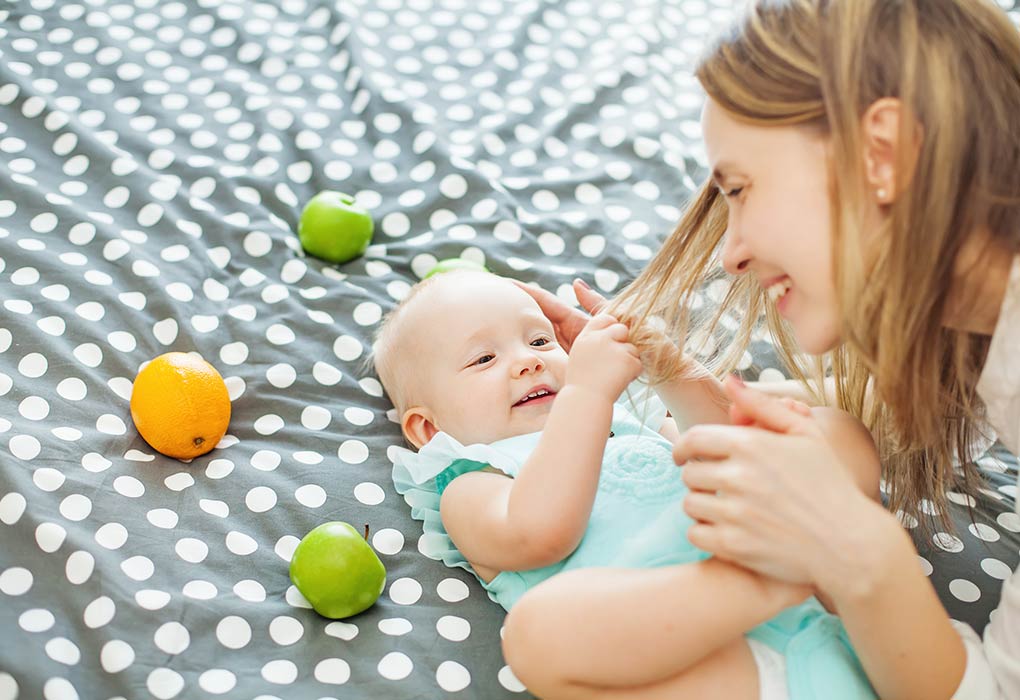When Do Babies Start Grabbing Your Hair
Even if your baby is totally bald when she’s born, the seeds of her future locks have long been planted. Ignoring toddlers is absolutely a form of punishment—what they crave the most in life is your attention.


When your baby does start walking, it happens in stages, which include these big milestones:



When do babies start grabbing your hair. The goofy newborn smiles may be your baby reflecting your own smile. But within a few weeks, she'll start to take more notice of your voice, face, and touch. Here’s how to encourage your baby's development.
As it turns out, this is actually a pretty normal occurrence among babies. Baby hair loss is not only normal — it's common. In the beginning, this means baby will love tightly grabbing your finger when he can or holding onto his binky for dear life.
When do babies grow hair? They're instinctively building a bond with you. Initially, the tiny tugs were kind.
At 6 months old, babies will typically roll over in both directions. They may also roll over from tummy to back. Showing needs and wants in ways other than crying.
Babies are actually born with an innate ability to grasp things. If you laugh or make it into a game, she might try it again to see whether she gets the same reaction. However, sometimes the hair pulling may be a sign of some serious problem such as ‘trichotillomania’.
Your baby should be reaching for familiar objects by month 4, although some infants may begin reaching — for toys, for the dog and, of course, for their caregivers — by month 3. Babies start rolling over as early as 4 months old. At 4 months old, ashley wall, of redwood city, ca, developed a little habit:
We'll tell you why this happens, when it will come back, and why there's no reason to let baby's tresses be one of your parental stresses. In babies and young children, hair pulling will often come and go. This instinct to grasp is a reflex, which means that.
Remember some slips and falls are inevitable and all part of learning. Standing, climbing furniture or walking. Mom may have to put away her dangly earrings for the next several months, and parents.
If she's eating solids, she won't be able to hold a baby spoon steady, but she'll try. It's very possible that your baby has trichotillomania (trich, for short, and at this age called baby trich), a disorder whose symptom is the pulling out of your own hair. This is when your baby starts grabbing onto furniture to pull themselves up and for support as they shuffle along a few steps (nhs choices, 2017b).
This one definitely comes as a surprise to most moms. Cruising is one of your baby’s last steps to walking completely independently. But it’s not until the first three or four months that your little one will begin to develop a better sense of perception and be able to actually control his reflexes.
Many babies learn to grab toys and other objects around 4 to 6 months — though some may start as early as 3 months. She'd pull her mother's hair, and pinch her neck and chest, whenever she was held. He yanked your hair by accident, you let out a yelp, he giggled, you couldn't help but laugh back (it was so cute the first time!), and, voilà, a game of cause and effect was born.
They will rock from side to side, a motion that is the foundation for rolling over. Around 10 months of age, your baby will hit a cool milestone: Babies start to sit up on their own.
The first true social smiles start brightening your days between 6 and 8 weeks. So always keep hot drinks out of reach. At 12 months old, your baby might be:
For example, your baby bites you and then watches to see what you’ll do. Hair follicles start to develop by week 14 or 15 of pregnancy, setting the stage for future strands to sprout. In some kids, it disappears altogether, and in others it comes back over time.
The idea of their baby pulling their hair out while breastfeeding seems rare and quite odd. Soon after your baby masters reaching, you can also expect her to start grabbing objects. Pointing with their index finger.
Your baby's ability to grasp things will develop gradually over her first year. It’s an exciting day when baby discovers how to use her hands. Newborn to two months if you place your finger in your newborn's palm and stroke it, she'll curl her tiny fingers around yours (aap 2009).
He'll grab on to a piece of furniture and pull himself up onto his feet. Shortly before she gets her first tooth (usually between 4 and 7 months), your baby will start picking up items here and there so she can put them in her mouth. A baby will grasp a finger or object when it is placed in the palm of her hand.
She won't be able to grab smaller objects, like peas, until she develops better finger dexterity. 4 to 8 months at 4 months, your baby can pick up large objects, such as blocks. 13 pull their hair out.
At 12 months old, your baby will be more social and will love going for walks with you outside as well as spend time with the family. It’s a way of exploring and getting to know their world. This reflex is most noticeable during the first month and usually fades by 2 or 3 months.





















0 Response to "When Do Babies Start Grabbing Your Hair"
Post a Comment